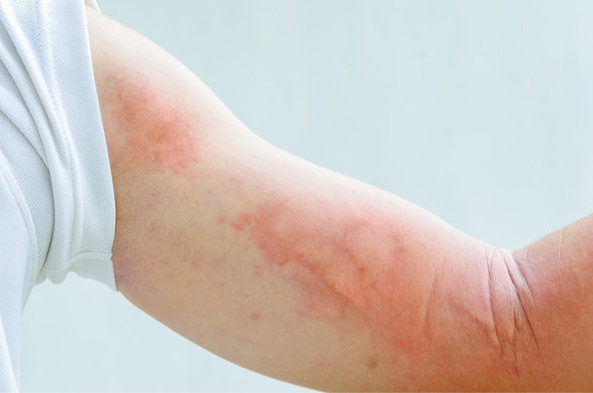Urticaria is a skin pathology, characterized by itchy spots on the skin. Symptoms of urticaria are usually mild, and the rash and angioedema usually go away on their own. However, in more severe cases, there may be dangerous complications that cause cyanosis, shortness of breath, high fever, vomiting, drop in blood pressure, Quincke's edema, which can even be life-threatening...
Urticaria usually manifests itself as blisters, red, pink, white or skin color, growing in several sizes.

Factors that can cause urticaria:
- Allergic reactions to food and other substances, such as drugs (antibiotics, especially penicillin; aspirin and ibuprofen).
- Due to physical activation such as cold, heat or pressure.
- Certain medical conditions such as infections or autoimmune diseases.
How is urticaria treated?
Drugs used in the treatment of urticaria:
- Medications for itching (antiallergic)
- Drugs that suppress the immune system
- Hereditary angioedema drugs
- Anti-inflammatory drugs
Be in the group of drugs of the first choice for the treatment of itching, allergies, urticaria; Cetirizin is a drug of the 2nd generation group of antihistamines with the dual effect of increasing the therapeutic effect and reducing side effects on the CNS (reducing drowsiness).

See more product information here.